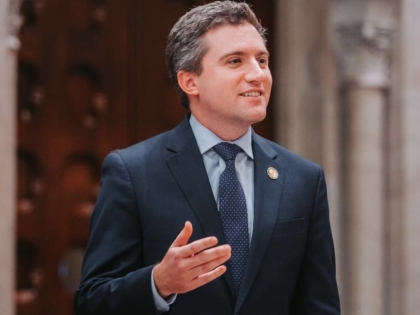
State budget carves out some SUNY campuses from MTA payroll tax

Some State University of New York campuses will escape an unpopular transit tax under the $254 billion budget that was passed by the Legislature last week.
The Metropolitan Transit Authority — which operates trains, subways and buses in New York City and surrounding counties — is set to receive $68.4 billion over the next five years as part of the state budget agreement. To pay for that plan, the state is relying on higher taxes for companies with a payroll of over $10 million in regions of the state served by the MTA.
The new state budget carves SUNY community colleges in the MTA’s 12-county region out of that payroll mobility tax. The six campuses are concentrated on Long Island and in the Hudson Valley, lawmakers said. Local governments in those regions will also be exempt from the tax going forward.
First approved by the state Legislature in 2009, the payroll mobility tax shifts some financial responsibility for the MTA onto companies whose employees presumably use the public transit network to get to work. Opponents see the tax as a bailout for an agency that’s struggled with debt and inefficiency for years.
State Sen. James Skoufis thinks the tax puts an undue burden on counties in his Hudson Valley district, where he said there’s a “complete lack of adequate train service.” The Hudson Valley Democrat would eventually like to see the payroll mobility tax lifted entirely. Short of that, he said, similar tax exemptions should be made for hospitals, health clinics and nursing homes.
“It’s just bad public policy,” Skoufis said. “With our left hand, we’re providing additional aid to all of these providers, and then with our right hand, we’re taking away a hunk of that aid through an increased payroll mobility tax. The hospitals in Orange County do not derive any benefit whatsoever from the MTA.”
The MTA’s financial woes are well-documented. The agency had $45.7 billion of debt as of March. Last year, it lost around $800 million from riders evading fares and tolls, the source of 40 percent of its annual operating budget. An audit from the state comptroller’s office found that it had not made sufficient progress towards the purchasing consolidation it committed to in 2019 as part of an effort to cut costs.
This year, taxes for businesses above the $10 million income threshold will increase from 0.34% to 0.635% in Westchester, Dutchess, Orange, Putnam and Rockland counties, and from 0.6% to 0.895% in New York City. That’s on top of an increase for New York City businesses that the state implemented to raise funds for the MTA two years ago.